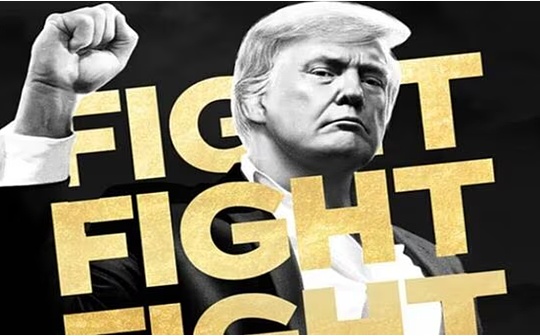WSJ: The inside story of the split between DOGE giants Musk and Ramaswamy

Reprinted from jinse
01/23/2025·3MAuthor: Ken Thomas, John McCormick, Wall Street Journal; Compiler: 0xxz@金财经
The Department of Government Effectiveness (DOGE) was originally conceived as a joint venture between Elon Musk and Vivek Ramaswamy outside the federal government. Now, it 's entirely Musk's responsibility -- and he's moved inside the federal government.
Musk's vision for DOGE and his around-the-clock online promotion are quickly gaining ground in President Trump's first days in office, as Ramaswamy has returned to his native Ohio and plans to announce plans next week to run for Ohio governor in 2026 campaign, and DOGE operations have fallen within the new presidential administration. Musk has been working in his West Wing office this week, according to a person familiar with the matter.
Tensions and philosophical differences between the two billionaires soon became apparent. They first met in 2023, when Ramaswamy was still challenging Trump for the Republican presidential nomination.
People familiar with the matter said that Trump's core aides are annoyed by Ramaswamy's outspokenness on nearly every topic, a tendency that has also angered Tesla and SpaceX CEO Elon Musk.
A person familiar with DOGE said: "There is always conflict between two CEOs who have built successful companies. Everyone sees the clues."
Ramaswamy frequently posts on Musk's The move also angered some Trump supporters and aides in a culture that "has long valued mediocrity over excellence."
Another person familiar with the matter said that the split was partly due to DOGE 's increasing focus on cutting spending (which Musk advocates) and less on cutting regulations and bureaucracy (which Ramaswamy is responsible for).
The person said there was "no bad blood" between Musk and Ramaswamy, but "as his terms of reference were narrowed and shifted, so was Ramaswamy's ability to serve, so he decided to resign."
During the Trump transition, there was internal speculation about whether DOGE would be established within the government, perhaps as a federal advisory committee or as an outside think tank or nonprofit organization. Ramaswamy has long argued that this work needs to be done outside government.
“We concluded that if this was going to be done, it had to be done by outsiders, and in many ways it had to be done from the outside,” he told The Wall Street Journal in a November interview. "Politicians have been talking about shrinking the federal government for a long time. Doing it the standard way is not going to work."
But the executive order on the president's first day in office made clear that DOGE would operate within the executive branch, renamed the United States Digital Service , which was established by the Obama administration after the initial failure of the Obamacare website. The agency's mission is to enhance information technology services across federal agencies.
The new agency will be called the United States DOGE Service , and its managers will report to White House Chief of Staff Suzy Wells. The executive order requires each federal agency to establish a DOGE team, including team leaders, engineers, human resources experts and attorneys. It's unclear whether the employees are new or will be paid. Musk originally said "zero pay" on X.
DOGE operated in secrecy largely on the basis of encrypted messages employees exchanged on Signal, but it soon faced lawsuits. On Monday, advocacy groups Public Citizen and the Defenders of State Democracy Foundation and the union group American Federation of Government Employees filed a lawsuit claiming DOGE failed to comply with the Federal Advisory Committee Act because its meetings were held in secret and the records have not been released to the public.
One aspect of Trump's executive order - a nod to one of Musk's key priorities
- urged agencies to implement the DOGE agenda to "maximize government efficiency and productivity by modernizing federal technology and software." Musk's effort, which will give him a deeper understanding of the government with which he does significant business, is expected to be completed by July 4, 2026.
One of the people familiar with the matter said the executive order "came as a surprise to a lot of people" because it brought DOGE, which was originally envisioned as an outside entity, into the executive branch. The executive order was developed within the past two weeks, the person said.
"Musk supports it and Vivek opposes it. I don't think it reflects the original mission and vision of DOGE that Trump articulated two months ago," the person said.
A person familiar with DOGE said there was initially a "cursory understanding" that Musk and Ramaswamy would be "equal partners" in the project, but both sides accepted Musk's global stature and his ties to Trump. SK will become a "senior partner".
The idea was that Ramaswamy would focus on the constitutional arguments for deregulation and cutting government, two topics he had been talking about in his writings and campaigns for years. Musk will focus on the technology part of the mission and using AI to reduce the federal workforce.
Once it was decided that DOGE would not become an outside entity, Ramaswamy knew it would conflict with his goals of running for Ohio governor because of the disclosures and other requirements required to be part of the federal government.
Next week, Ramaswamy is expected to announce his candidacy to succeed Republican Gov. Mike DeWine, who is serving his second term. Mike DeWine is a more traditional Republican.
“His credibility as a federal employee is not high,” the person said.



 chaincatcher
chaincatcher
 panewslab
panewslab